The ‘1 Nojor’ media platform is now live in beta, inviting users to explore and provide feedback as we continue to refine the experience.
A powerful group in Pabna’s West Jamua village destroyed 60 houses in a government shelter project, claiming the land as their own. Residents allege they were forcibly evicted at gunpoint after the fall of the Awami League government. The group looted materials from the homes and placed a signboard citing a court case. Now, displaced families are living in dire conditions on nearby embankments. Local authorities have yet to act, despite repeated appeals from the victims for rehabilitation and justice.

Malaysia has made history by recognizing cryptocurrency as eligible for zakat, the obligatory Islamic charity. The Federal Territories Islamic Religious Council announced the decision to align zakat practices with the digital era. Cryptocurrency, a rapidly growing sector in Malaysia, involves 54.2% of the country’s investors, mostly aged 18–34, holding assets worth 16 billion ringgit. Officials see this as a potential new zakat source, particularly for young Muslims. The move reflects Malaysia’s effort to adapt Islamic finance to modern economic trends.

Police arrested four individuals, including two army personnel, while they were preparing for a robbery in Banani, Dhaka. The suspects, including a journalist and a source for the robbery gang, were caught on the night of January 21. The police seized military uniforms, shoes, identity cards, a microbus, and lock-breaking tools from them. The two army personnel have been handed over to the military, while the other two suspects were placed on a three-day remand. Investigations are ongoing.

A bomb threat was sent via WhatsApp to the duty officer at Hazrat Shahjalal International Airport from a Malaysian number on January 22. The message led to immediate security measures being implemented. However, flight operations remained unaffected. Earlier, another threat about explosives onboard a Bangladesh Airlines flight from Italy was reported as a warning. National Security Advisor dismissed the threats as false information, and authorities are working to identify those responsible for spreading it. No incidents occurred at the airport.
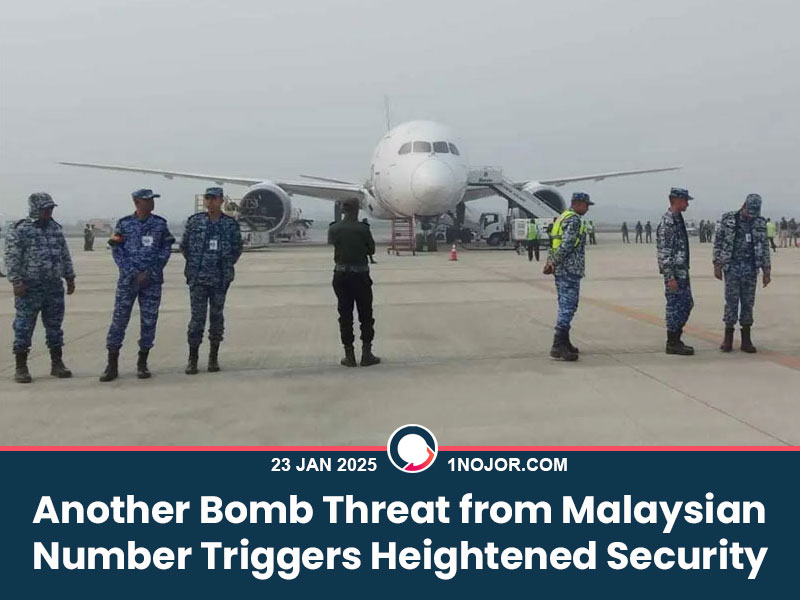
The UN Human Rights Commission will publish its fact-finding report on the July-August 2024 mass uprising in Bangladesh, led by the student movement against inequality, in February. The report, nearing completion, will be shared with Bangladesh before its release. Chief Advisor Dr. Muhammad Yunus thanked the UN for investigating the crimes during the student-led rebellion and emphasized that reports from six independent commissions will also be released. Yunus also urged the UN to support resolving the Rohingya crisis with a proposed safe zone in Myanmar’s Rakhine region.
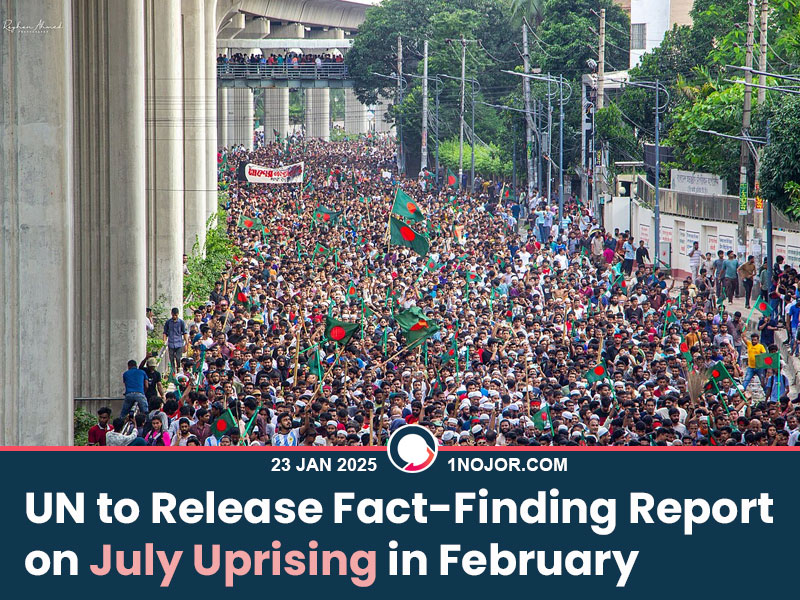
Another large wildfire, the Hughes fire, has erupted near Castaic Lake, north of Los Angeles, spreading rapidly over 9,400 acres amid dangerous winds. Mandatory evacuations were issued for 31,000 residents as the flames threaten homes, schools, and a major jail complex. Fire crews are working tirelessly to contain the new blaze while officials prepare for potential rain, which could trigger mudslides in burned areas. With red flag warnings in effect, Southern California faces continued critical fire risks as this latest wildfire intensifies the region’s challenges.

The Directorate of Secondary and Higher Education (DSHE) has canceled a controversial notice that directed action against students involved in spreading rumors, propaganda, or misinformation against the government or state. Issued on January 2, the notice sparked public outcry for urging strict vigilance and reporting of such activities. On January 22, Professor Md. Abed Nomani confirmed the withdrawal, stating it was a joint decision by MAUSI and the Education Ministry. However, no specific reasons were provided for revoking the directive.

A fire rumor in the Lucknow-Mumbai Pushpak Express triggered panic among passengers, who jumped off the train in fear. The chaotic situation led to 12 deaths when passengers were hit by the passing Karnataka Express. The incident occurred on January 22 near Jalgaon, Maharashtra, after a “hot axle” or “brake jam” caused sparks. Emergency relief teams were sent, and medical aid was provided to the injured. Maharashtra’s Chief Minister expressed condolences, with efforts underway to assist the affected families.

Professor Dr. Muhammad Yunus has appealed to world leaders for assistance in recovering billions stolen from Bangladesh. During the World Economic Forum in Davos, he met with leaders from Germany, Belgium, Thailand, Switzerland, and Congo, discussing economic cooperation, climate action, and the Rohingya crisis. Dr. Yunus highlighted corruption under the former government and outlined the interim government’s reform efforts. He urged international support to investigate past financial crimes and emphasized Bangladesh’s youth potential, clean energy initiatives, and plans to strengthen regional partnerships like BIMSTEC.

Shortly after taking office, U.S. President Donald Trump issued executive orders targeting undocumented immigrants, sparking nationwide crackdowns. In Brooklyn, New York, ICE officers in plain clothes arrested four Bangladeshis during a raid. Witnesses reported being asked for identification, with one individual arrested after invoking the Fifth Amendment. Trump has signed over 100 immigration-related orders, including revoking birthright citizenship and halting legalization programs. The measures, coupled with heightened border security, have created widespread fear among undocumented immigrants, prompting legal challenges from 24 states and cities.
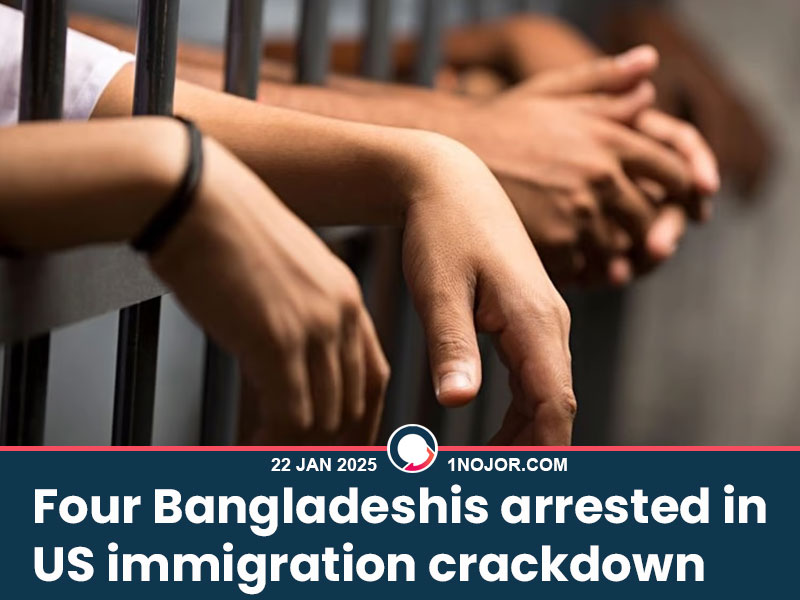
“The increased tax on internet services has been withdrawn,” advisor Nahid Islam announced in a Facebook post. He further stated, “We are determined to reflect your hopes and aspirations in policy decisions.” Nahid Islam is one of the notable figures from the July-August protests who remained steadfast despite being arrested and subjected to severe torture by the police. He had encouraged students to continue their movement. Later, when an interim government was formed under the leadership of Dr. Yunus, Nahid Islam joined as an advisor (minister) for the Ministry of Posts and Telecommunications and has been working tirelessly for the country ever since.

Education Advisor Dr. Wahiduddin Mahmud highlighted the fragile state of Bangladesh’s education system, citing decades of decline starting in 1972 due to poor policy decisions, including converting prestigious colleges into university colleges and unchecked nationalization. Speaking to the Education Reporters Association, he emphasized that systemic issues take time to develop and cannot be quickly resolved. Poor primary education cascades into secondary and higher education, perpetuating a cycle of underqualified graduates. He also criticized the current state of National University graduates, many of whom remain unemployed.
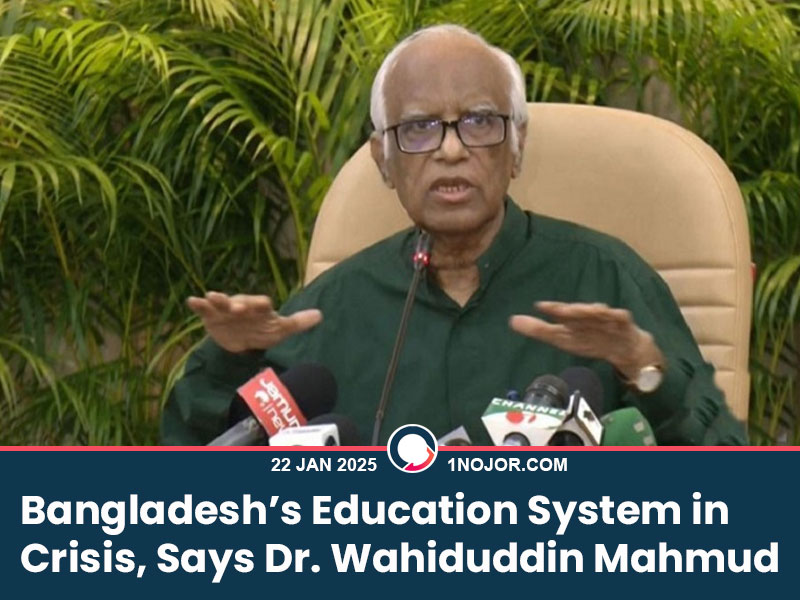
Chief Prosecutor Mohammad Tazul Islam has warned that promoting hate speech or inflammatory remarks by former Prime Minister Sheikh Hasina, accused of genocide and crimes against humanity, is prohibited by the International Crimes Tribunal. Addressing journalists, he accused Hasina of attempting to undermine the tribunal’s proceedings and influence investigations through provocative statements from abroad. The tribunal has banned the dissemination of such remarks in media and social platforms and directed the BTRC to remove existing content to ensure justice and protect witnesses.

President Donald Trump signed an executive order halting all U.S. foreign assistance programs for 90 days pending a review of their alignment with U.S. policy objectives. The suspension affects new aid disbursements, but many existing programs are already funded. Trump criticized the foreign aid system, stating it destabilizes world peace and promotes values contrary to U.S. interests. Secretary of State Marco Rubio emphasized that foreign assistance must justify its benefits to U.S. safety, strength, and prosperity, with determinations made by his office.

India has agreed to take back 18,000 of its illegal immigrants from the United States, responding to pressure from President Trump’s administration. This move is part of broader cooperation on immigration issues and aims to avoid trade conflicts while strengthening ties with the U.S. The Indian government will begin deportation procedures after identifying the individuals. In exchange, India expects the Trump administration to protect legal immigration channels, such as student visas and the H-1B program, for Indian citizens.
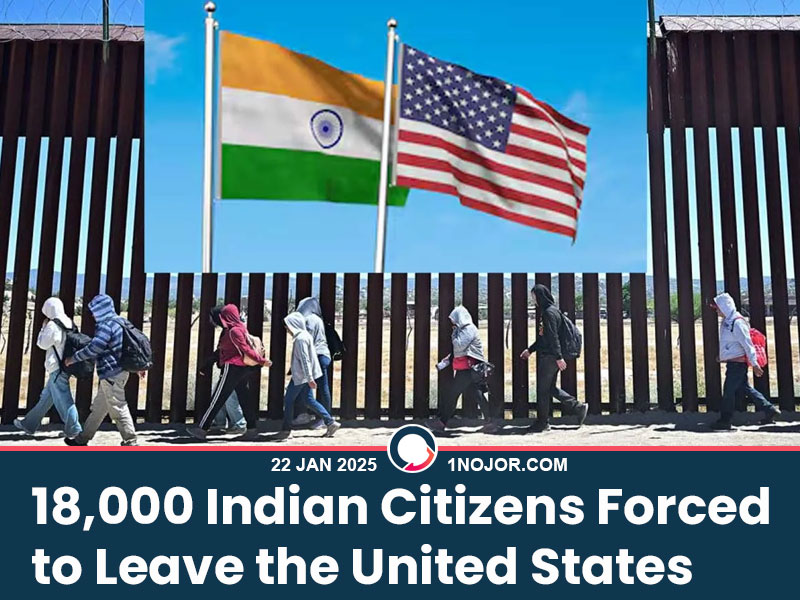
The ‘1 Nojor’ media platform is now live in beta, inviting users to explore and provide feedback as we continue to refine the experience.